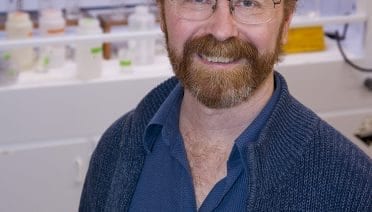Press Room
Enduring two typhoons over a three-week period in August, Woods Hole Oceanographic Institution (WHOI) researchers, working in partnership with the Okinawa Institute of Science and Technology Graduate University (OIST), have successfully deployed an OceanCube Observatory System in waters off Motobu…
Just days before a team of researchers from Woods Hole Oceanographic Institution (WHOI) and National Taiwan University set out to conduct fieldwork in the East China Sea, Typhoon Morakot—one of the most destructive storms ever to hit Taiwan—made landfall on…
Scientists have discovered a vast plume of iron and other micronutrients more than 1,000 km long billowing from hydrothermal vents in the South Atlantic Ocean. The finding, published online Aug. 18 in the journal Nature Geoscience, calls past estimates of…
White shark tagging expedition sets sail (July 31), Discovery Channel Shark Week segment “The Return of Jaws” features WHOI’s REMUS technology (Aug. 5), and WHOI scientists and engineers share latest research at Woods Hole public event (Aug. 7). As mythic…
Under the microscope, they look like they could be from another planet, but these microscopic organisms inhabit the depths of our oceans in nearly infinite numbers. To begin to identify where, when, and how much oceanic plankton can be found…
Ten science reporters, writers, and multimedia journalists from the U.S., Canada, and India have been selected to participate in the competitive Woods Hole Oceanographic Institution (WHOI) Ocean Science Journalism Fellowship program. The program takes place September 8-13, 2013, in Woods…
A chemical analysis of oil sheens found floating recently at the ocean’s surface near the site of the Deepwater Horizon disaster indicates that the source is pockets of oil trapped within the wreckage of the sunken rig. Both the Macondo…
At the end of the last Ice Age, as the world began to warm, a swath of the North Pacific Ocean came to life. During a brief pulse of biological productivity 14,000 years ago, this stretch of the sea teemed…
Corals may let certain bacteria get under its skin, according to a new study by researchers at Woods Hole Oceanographic Institution (WHOI) and King Abdullah University of Science and Technology (KAUST) and soon to be published in the journal Applied…
Our understanding of the ocean and its variability relies on the tools ocean scientists deploy to collect data. One tool routinely used is the eXpendable BathyThermograph (XBT) probe, which is usually deployed by hand one at a time at sea.…
Scientists have discovered a diverse multitude of microbes colonizing and thriving on flecks of plastic that have polluted the oceans—a vast new human-made flotilla of microbial communities that they have dubbed the “plastisphere.” In a study recently published online in…
Woods Hole Oceanographic Institution (WHOI) biochemist Benjamin Van Mooy has been awarded one of two inaugural fellowships at the University of Southampton in England. The Diamond Jubilee International Visiting Fellowship was established last year to commemorate the university’s 60th anniversary…
On Friday, June 14, filmmaker James Cameron delivered the DEEPSEA CHALLENGER, the only human-occupied vehicle currently able to access the deepest parts of the ocean, to Woods Hole Oceanographic Institution. Dr. Susan Avery, president and director of Woods Hole Oceanographic…
The deep biosphere—the realm of sediments far below the seafloor—harbors a vast ecosystem of bacteria, archaea, and fungi that are actively metabolizing, proliferating, and moving, according a new study by scientists at Woods Hole Oceanographic Institution (WHOI) and the University…
UPDATED 6/10/13 9 P.M.—Please note new locations for events at 9:30 & 12:30 p.m., new start time for Senate hearing (3 p.m.), and additional sponsor. Washington, D.C. – Explorer and director James Cameron will be on Capitol Hill on Tuesday,…
New Zealand’s geologic hazards agency reported this week an ongoing, “silent” earthquake that began in January is still going strong. Though it is releasing the energy equivalent of a 7.0 earthquake, New Zealanders can’t feel it because its energy is…
Acidifying oceans could dramatically impact the world’s squid species, according to a new study led by Woods Hole Oceanographic Institution (WHOI) researchers and just published online in the journal PLOS ONE. Because squid are both ecologically and commercially important, that…
With the official start of hurricane season set to begin June 1, the Massachusetts Homeowner’s Handbook to Prepare for Coastal Hazards is now available, marking National Hurricane Preparedness Week. While the devastating power of nor’easters in Massachusetts was visible this…
The widespread disappearance of stromatolites, the earliest visible manifestation of life on Earth, may have been driven by single-celled organisms called foraminifera. The findings, by scientists at Woods Hole Oceanographic Institution (WHOI); Massachusetts Institute of Technology; the University of Connecticut;…
Woods Hole Oceanographic Institution Senior Scientist Ken O. Buesseler has been appointed a foreign member of the Royal Netherlands Academy of Arts and Sciences. Buesseler is one of two foreign members in the 2013 cohort of 17 new members. The…


